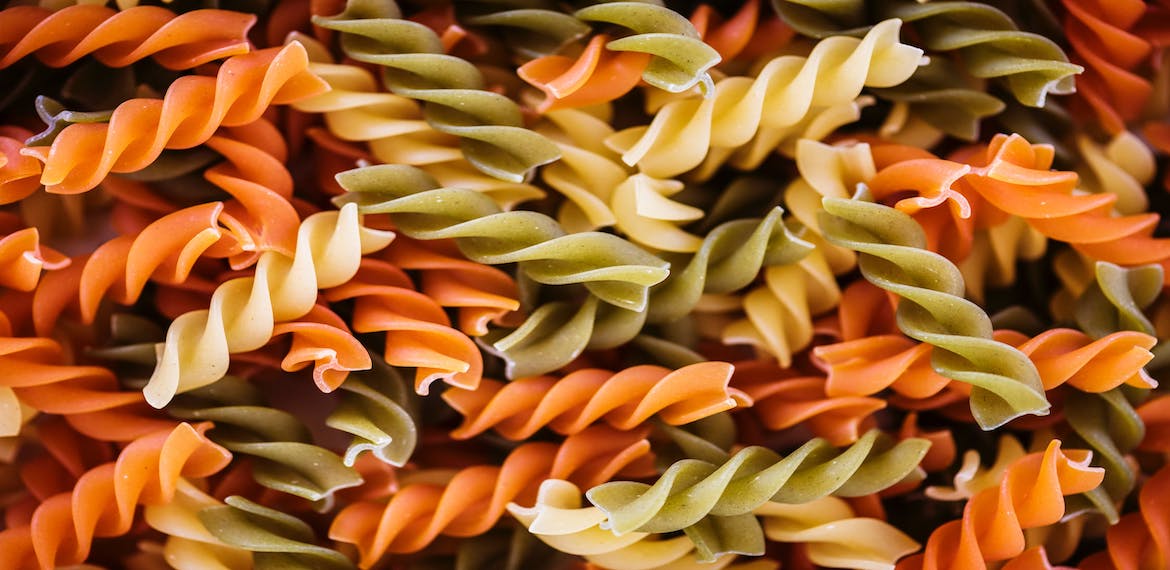 Mar
28
Mar
28
Do I need carbs as a cyclist
- 28 March 2024
- 0 Comment(s)
You probably know them, the cyclists with their pockets full of bars and bananas, heading out for a ride of a few hours. They’ve probably been indulging in pasta the day before. Carb-loading is the motto. I always get the feeling that these cyclists eat amounts of carbohydrates that wouldn’t be out of place at the Tour or Giro. I don’t have any judgment about this, just an observation. Let’s read a bit more about carbs vs fat for cyclists.
What to eat then
Personally, I don’t do that, and I mainly eat a lot of vegetables, fruits, and fish. Even for a ride of about 4 hours or a tough route like the AGR or LBL, I don’t eat any differently than I’m used to. Usually, I just take a couple of muesli bars with me for the journey. Enough for me to get by! I always ride training sessions of about 2 to 3 hours without eating anything along the way. I only take 2 bottles of 750 ml homemade sports drink. This consists of a mix of ribose and magnesium powder from Bonusan.
Recently, I came across the following article by Hilde Maris. It resonated with me, so I decided to share it here. Perhaps others can benefit from it too.
Even low-carb eating can be trained
It’s a commonly accepted idea that endurance athletes should eat a lot of carbohydrates. This is to have enough energy and to replenish their reserves after a training session or competition. However, endurance athletes can derive many benefits from a low-carb diet. The body adapts to a low-carb diet by burning more fats. Endurance athletes who eat few carbohydrates burn even more fats for their energy production than was previously thought possible.
Despite the common advice from most sports organizations to eat a lot of carbohydrates, more and more endurance athletes are adopting a low-carb diet. They want to train their metabolism for fat burning. This is because during a race, they don’t have to carry food and don’t have to stop for food and carbohydrate-rich drinks. Moreover, they avoid stomach and intestinal problems by not eating during intense exercise.
Tests
To test the effect of a low-carb diet on the metabolism and performance of endurance athletes, Dr. Patrick Davitt recently conducted research on twenty experienced ultramarathon runners. All of them had run a 75 km race at least once. Their average age was 33.5 years and their average BMI was 22.6 kg/m2.
Ten ultramarathon runners ate a high-carbohydrate diet with 58% carbohydrates, 15% protein, and 28% fat. The other ten ultramarathon runners ate a low-carbohydrate diet with 11% carbohydrates, 19% protein, and 71% fat. They had to follow this diet for at least six months.
During a treadmill test, the oxygen consumption, maximum aerobic capacity (VO2max), and the amount of fats and carbohydrates burned were measured. There was no difference in aerobic capacity between the two groups. The ultramarathon runners on a low-carb diet burned more than twice as much fat per minute as those on a high-carb diet (1.54 grams versus 0.67 grams of fat per minute). Until now, it was assumed that the maximum amount of fat that could be burned per minute was less than a gram.
Ultramarathon runners who eat low carbohydrates can run at a higher speed for longer without refueling with carbohydrates. They also switch to fat burning faster than those who eat a lot of carbohydrates. The only disadvantage of fat burning compared to carbohydrate burning is that it’s harder to sprint or accelerate. So did you an idea of the need of carbs vs fat for cyclists?
Read more blogs via this page.
Source: Hilde Maris, Scientific Journalist, Orthomolecular Medicine, PlaceboNocebo magazine
Author: Tjeerd Douma
